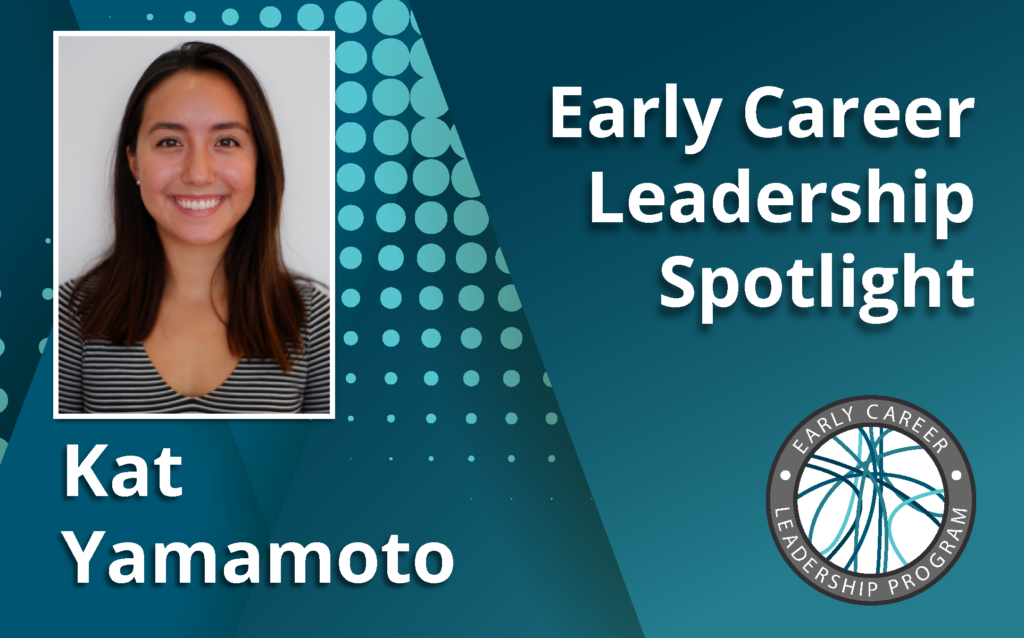We’re taking time to get to know the members of the GSA’s Early Career Scientist Committees. Join us to learn more about our early career scientist advocates.
Kat Yamamoto
Community and Membership Engagement Subcommittee
Queens College and the Graduate Center of the City University of New York
Research Interest
Organisms face many microbes in their environment, and the immune system must protect against infection. Most research has focused on aspects of innate immunity that decrease pathogen load, with the two best known strategies being: avoidance, which reduces risk of exposure to infection, and resistance, which reduces pathogen burden once the infection is established. Less is known, however, about the role of host metabolism in supporting survival independent of anti-bacterial responses, for example through immune tolerance, which reduces the negative side-effects of infection. The word “tolerance” was chosen for its definition as the “capacity to endure,” demonstrating how this understudied immune strategy may greatly improve survival. An aspect of physiology that may affect immune tolerance is lipid metabolism, which has been shown to affect many facets of human physiology, from energy synthesis at the organelle level to organism-wide regulation of fundamental functions. Furthermore, individuals with diabetes or other metabolic diseases experience an increased risk of severe infection, suggesting that lipid metabolism plays a role in an effective immune response. Using the free-living nematode C. elegans, I study how the conserved Bone Morphogenetic Protein (BMP) signaling pathway co-regulates lipid metabolism and innate immune response, ultimately contributing to immune tolerance. I hope to uncover mechanisms of how host metabolism may support infection survival.
As a PhD-trained scientist, you have many career options. What interests you the most?
My main career priority is geographic. After pursuing all of my higher education on the U.S. mainland, I plan to move back to my hometown of Honolulu, Hawai’i. I hope to be part of a movement of locals returning home after training to foster a scholastic environment, increase research accessibility, and empower the community with greater access to STEM opportunities. When I was beginning my PhD, my goal was to move home to become a Principal Investigator and establish my own laboratory. Now, I see that my interests align more with teaching, curriculum development, and research opportunities outside of a PI role. I am actively exploring what these opportunities may look like and am always interested in connecting with other kamaʻāina in science!
In addition to your research, how do you want to advance the scientific enterprise?
As an early career scientist, I have benefited greatly from the mentorship of others, and I hope to return this favor to other scientists. Currently, I mentor undergraduates and high school students and love the experience of supporting them in their research journeys. I find that research and the process of discovering “new knowledge” develop skills that the classroom cannot: deep critical thinking, resilience in the face of experimental failures, and a confidence in problem-solving. I hope to always find opportunities for scientific mentorship, since the scientific enterprise benefits greatly from new and varied perspectives.
As a leader within the Genetics Society of America, what do you hope to accomplish?
GSA is the scientific organization that I’ve connected with the longest—first as an undergraduate in a yeast genetics lab and now as a C. elegans genetics PhD student. I joined the ECLP with the goal of interacting with an international network of scientists and ultimately trying to find community within the challenging landscape that is academic science. I’m interested in exploring different career paths, while improving my own leadership and communication skills.
As community is the most important aspect for me, it’s fitting that I am a member of the Community and Membership Engagement Subcommittee. I often ask, “How can we facilitate strong relationships within this community?” This is a question I hope to work on answering within GSA and then sharing across other environments. In this subcommittee, I am the co-lead for the Crossroads Seminar Series, which aims to showcase early career scientists and their work. Each session will have a central theme, and every speaker will come from the point of view of different model organisms. We look forward to rolling this project out in 2024!
Previous leadership experience
- Campus Representative, Queens College, CUNY, 2022-2023
- Senator, Associated Students of the University of California, UC Berkeley, 2017-2018
- Student Representative, Academic Senate, UC Berkeley, 2017-2018




